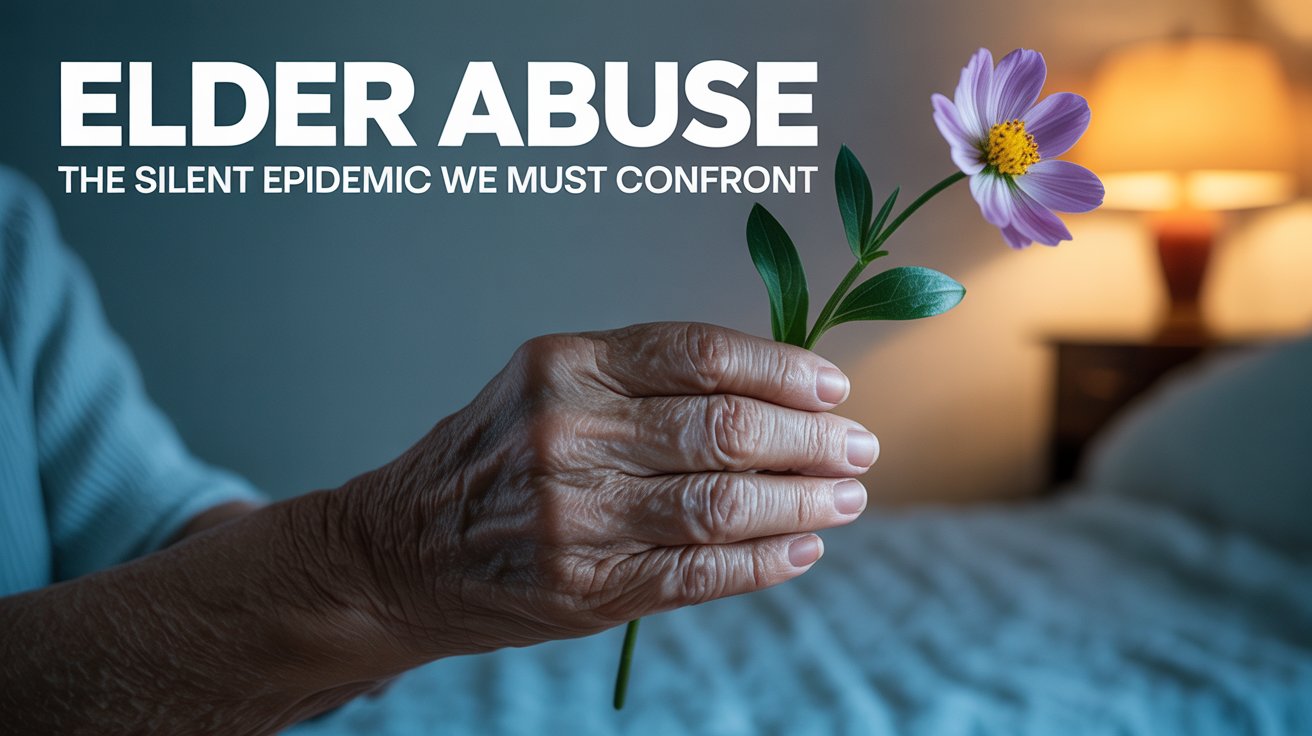
Elder Abuse: The Silent Epidemic We Must Confront
What Is Elder Abuse?
Elder abuse is any intentional act—or failure to act—that causes harm or distress to an older adult. It can take many forms, including physical abuse, emotional abuse, sexual abuse, financial exploitation, neglect, and abandonment. Sadly, most cases occur at the hands of trusted individuals—family members, caregivers, or professionals.
Why Elder Abuse Is a Growing Crisis
As global populations age rapidly, the number of older adults is increasing. Yet, with this growth comes a rise in elder abuse. According to the World Health Organization, 1 in 6 people aged 60+ experienced some form of abuse in community settings during the past year.
The problem is often underreported, either due to fear, shame, or inability to communicate. Many older adults suffer in silence, making elder abuse a hidden but deadly epidemic.
Types of Elder Abuse
1. Physical Abuse
Hitting, pushing, or restraining an elderly person, often leaving unexplained injuries or bruises.
2. Emotional or Psychological Abuse
Yelling, humiliating, threatening, or isolating the elder, causing emotional distress or mental health decline.
3. Sexual Abuse
Non-consensual sexual contact of any kind. This is among the least reported but gravely damaging forms.
4. Financial Exploitation
Stealing money, property, or misusing power of attorney. Scammers and even close relatives are often culprits.
5. Neglect
Failure to provide basic needs like food, shelter, healthcare, or hygiene.
Warning Signs of Elder Abuse
Unexplained injuries or frequent hospital visits
Withdrawal from normal activities
Sudden changes in financial status
Poor hygiene or unsafe living conditions
Fearfulness around certain individuals
Unusual depression or anxiety
How You Can Help Prevent Elder Abuse
Stay connected: Regular visits and communication with elderly loved ones reduce isolation.
Educate yourself and others: Awareness is the first step to prevention.
Report suspicious behavior: If you see signs of abuse, don’t stay silent. Contact adult protective services or local authorities.
Empower seniors: Help them manage their finances and legal affairs securely.
Where to Get Help
Adult Protective Services (APS) – Available in most regions.
National Elder Abuse Hotlines – 24/7 confidential support.
Local law enforcement – In cases of immediate danger.
Final Thoughts
Elder abuse is not just a personal or family issue—it’s a public health and human rights concern. Every elder deserves dignity, respect, and safety. It's time to break the silence, raise awareness, and take collective action.
 Sign In With Google
Sign In With Google
Leave A Comment